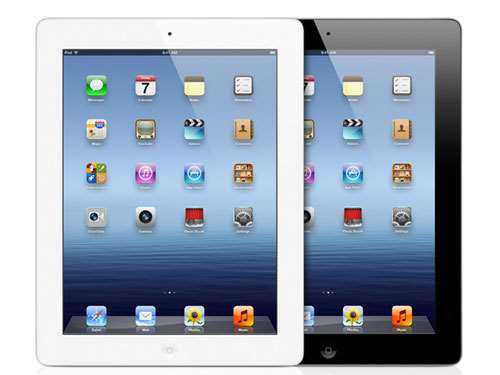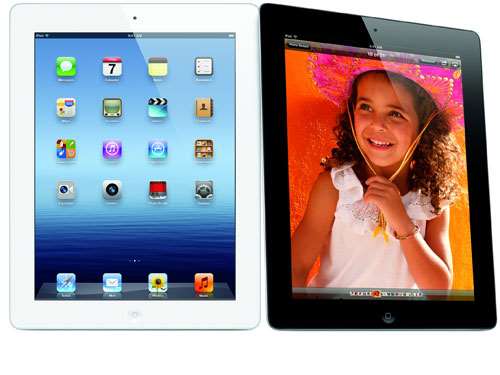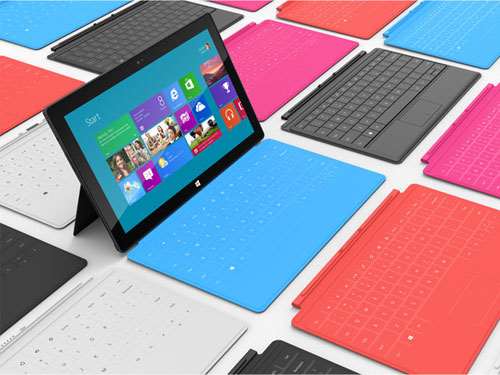Microsoft yesterday launched itself headfirst into the tablet market with its own line of Surface devices. But how will the Windows 8 Pro and Windows RT tablets stack up against market leader Apple and its latest iPad?

Build
Apple is famed for its solid build quality and the iPad 3 is no exception. Its 9.4mm thick metal shell feels strong in the hand and grips comfortably.
Microsoft's brought its own materials to the party, with the Surface constructed from a new material called VaporMG. Microsoft claims it makes the Surface easy to grip and gives the tablet the quality of a high end luxury watch.
The Surface also uses a 22-degree angle on the bezel for comfort and looks. The Windows 8 Pro version will be a chunky 13.5mm thick versus the iPad's 9.4mm.
The Surface Pro's girth also makes it heavier than the iPad 3, at 903g versus the iPad's 662g. The Surface RT, despite being thinner than the iPad at 9.3mm thick, is slightly heavier than Apple's slate – weighing in at 676g.

Hardware
While Apple is famed for delivering smooth results without huge processing grunt, it's gone for power with the iPad 3's dual-core A5X processor. But a dual-core does start to look a bit feeble next to the Windows Surface RT's (likely) quad-core Nvidia Tegra 3 innards. And the Windows Surface Pro should leave them both in the dust, with Intel Core i5 Ivy Bridge powers.
In terms of memory, the Surface RT offers the same 32GB and 64GB options as the iPad, while the Surface Pro comes in super-sized 64GB or 128GB configurations.

Screen
The iPad 3's retina display sets the bar for tablet displays very high. Microsoft will use a ClearType HD screen (with an as-yet-undisclosed resolution) in the RT Surface, and a ClearType HD screen with 1080p resolution in the 8 Pro Surface.
Neither match the 2048x1536 pixel coverage of the iPad 3. But 1080p is still plenty for the human eye – and it’s on a larger 10.6in screen compared to the iPad’s 9.7in effort.

OS
iOS 5 on the iPad is attractive, smooth-running, and bursting with great apps. And iOS 6 is just around the corner, bringing Apple's virtual assistant Siri to the iPad. While Microsoft might not yet have the apps to compete with Apple's mobile OS, what we’ve seen of Windows 8 so far looks brilliant.

Connectivity
Connectivity is the iPad's Achilles heel – and the Surface is packed with ports. The Surface Pro has a Mini DisplayPort for outputting to a monitor, as well as USB 3.0 and a microSDXC port. The Surface RT dials things back with USB 2.0, microSD (up to 64GB) and Micro HD connectivity, beating the iPad's single dock connector.
The Surface also has great add-on options: Microsoft's Touch Cover, a 3mm magnetically-attaching cover, includes a pressure sensitive keyboard. Microsoft's also created the Type Cover – a more solidly built effort that packs physical keys and a multi-touch trackpad into its 5mm thick frame.

Verdict
While the iPad 3 may have a more stable OS, better screen, and greater app offerings initially, Windows has the hardware advantage. With more powerful slates that have greater connectivity the Surface could bridge the laptop/tablet gap where the iPad fails.
And with the price being touted as between US$600 and US$1000 when they land in October, Apple should be very worried indeed.




_(21).jpg&h=142&w=230&c=1&s=1)

_(27).jpg&h=142&w=230&c=1&s=1)

.jpg&h=142&w=230&c=1&s=1)




.jpg&w=100&c=1&s=0)








_(1).jpg&q=95&h=298&w=480&c=1&s=1)


